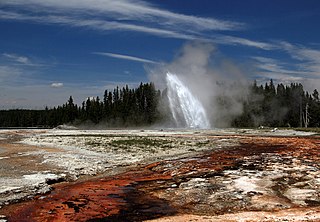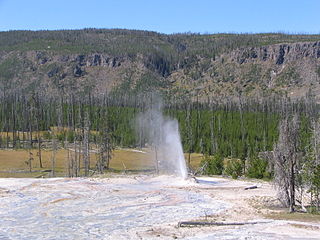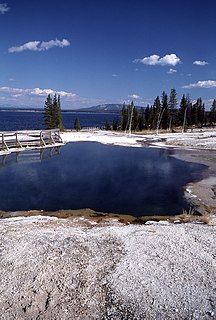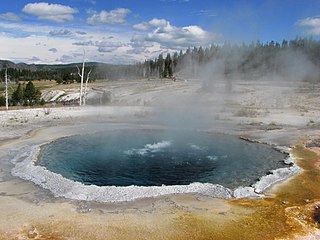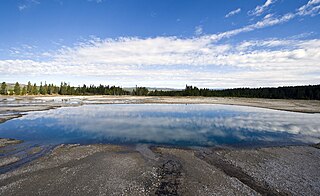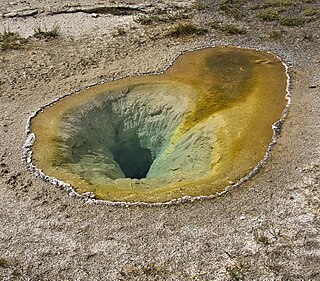| Surprise Pool | |
|---|---|
Surprise Pool | |
| Location | Lower Geyser Basin, Yellowstone National Park, Wyoming |
| Coordinates | 44°32′10″N110°48′02″W / 44.53611°N 110.80056°W Coordinates: 44°32′10″N110°48′02″W / 44.53611°N 110.80056°W [1] |
| Elevation | 7,326 feet (2,233 m) [1] |
| Type | Pool |
Surprise Pool is a hot spring pool in the Lower Geyser Basin of Yellowstone National Park in the United States. It is located near Great Fountain Geyser and A-0 Geyser.
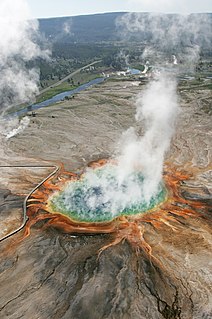
A hot spring is a spring produced by the emergence of geothermally heated groundwater that rises from the Earth's crust. While some of these springs contain water that is a safe temperature for bathing, others are so hot that immersion can result in injury or death.

Yellowstone National Park is an American national park located in Wyoming, Montana, and Idaho. It was established by the U.S. Congress and signed into law by President Ulysses S. Grant on March 1, 1872. Yellowstone was the first national park in the U.S. and is also widely held to be the first national park in the world. The park is known for its wildlife and its many geothermal features, especially Old Faithful geyser, one of its most popular features. It has many types of ecosystems, but the subalpine forest is the most abundant. It is part of the South Central Rockies forests ecoregion.

The United States of America (USA), commonly known as the United States or America, is a country composed of 50 states, a federal district, five major self-governing territories, and various possessions. At 3.8 million square miles, the United States is the world's third or fourth largest country by total area and is slightly smaller than the entire continent of Europe's 3.9 million square miles. With a population of over 327 million people, the U.S. is the third most populous country. The capital is Washington, D.C., and the largest city by population is New York City. Forty-eight states and the capital's federal district are contiguous in North America between Canada and Mexico. The State of Alaska is in the northwest corner of North America, bordered by Canada to the east and across the Bering Strait from Russia to the west. The State of Hawaii is an archipelago in the mid-Pacific Ocean. The U.S. territories are scattered about the Pacific Ocean and the Caribbean Sea, stretching across nine official time zones. The extremely diverse geography, climate, and wildlife of the United States make it one of the world's 17 megadiverse countries.




